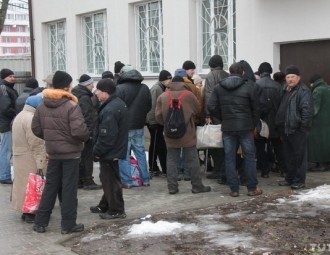Belarusian Helsinki Committee requested the Parliament to abolish the Decree “on social dependency”

The human rights activists adduce 7 arguments why the Decree should be considered to be violating the Constitution and international treaties of the state, and why it should be abolished.
The list of the violations includes not only a new form of forced labour, but also the encroachment on the right and obligation of the citizens to raise their children and take care of their aged parents, serious restrictions on the privacy and personal data protection, and misuse of the authority by the President.
Providing arguments to abolish the Decree on "parasites", RHRPA "Belarusian Helsinki Committee" asks the Parliament in its appeal to abolish the Decree or refer it to the Constitutional Court so it would give its opinion concerning the accordance of this act with the Constitution and international law acts ratified by the country.
The Decree #3 of the President of the Republic of Belarus on prevention of social parasitism, issued on April 2nd, 2015 (known in the public space as "the decree on parasites") stipulates that citizens of the Republic of Belarus, foreign citizens, and stateless persons who were granted permission to resident habitually in the Republic of Belarus, in case of their non-contribution to financing of public expenditure or contribution to such financing for less than 183 calendar days during the tax period, are considered to be payers of the public expenditure financing levy.
7 reasons to abolish the Decree on social dependency from Belarusian Helsinki Committee
-
03.01
-
07.10
-
22.09
-
17.08
-
12.08
-
30.09



























